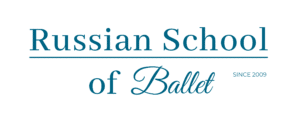
10 Mar Helping Young Dancers Embrace Challenges: A Guide for Parents
When Reluctance Signals Growth Opportunities
As parents, we want our children to experience joy in everything they do. We ask, “Did you have fun?” after each activity, hoping to hear an enthusiastic “Yes!” But what happens when your little dancer shows reluctance before ballet class, drags their feet on the way to the studio, or seems hesitant about attending?
This moment, though challenging, presents a wonderful opportunity to help your child develop resilience and discover the deeper rewards that come from perseverance.
Understanding Your Child’s Experience
Around age 5-6, many children encounter their first real physical challenges in ballet classes. Until this point, most activities have been primarily focused on play and immediate enjoyment. Ballet, while certainly joyful, also introduces young dancers to concepts like discipline, technique, and physical exertion.
When children begin to feel muscle fatigue or find themselves working hard to master new skills, they often don’t have the vocabulary to express these new sensations. Instead, you might notice physical cues like dawdling before class, complaints about being tired, or resistance to putting on their ballet clothes. What they may not yet understand is that these feelings of effort are actually signs of growth and development.
The Revealing Moment: After Class Feelings
Here’s something many parents notice: Pay attention to your child’s mood when they exit their ballet class. How do they feel at the end of the lesson? If they’re happy, smiling, and excited to show you what they learned, this is a strong sign that they actually enjoy ballet.
Children often show reluctance before activities that challenge them, but their post-class enthusiasm reveals their true feelings about the experience. That sparkle in their eyes as they demonstrate their new moves tells you everything you need to know!
Having Those Supportive Conversations
When your child shows signs of resistance to ballet, try sitting down together when you’re both relaxed. Rather than directly asking why they don’t want to go (which they might not be able to articulate), observe what happens before class and gently explore what parts of ballet feel challenging for them.
You might then explain that feeling tired during and after ballet is actually their body getting stronger – just like a plant needs to push through soil to grow. Share examples from your own life where you had to work hard to achieve something meaningful, emphasizing how proud you felt afterward.
For example, you might say: “You know, I don’t always feel like going to the gym either. Sometimes I feel tired just thinking about it! But I’ve noticed that after I go, I always feel happier and more energetic. Even when it’s difficult to start, I’m always glad I went. That’s because sometimes the things that make us the happiest aren’t always easy at first – they require a little effort, but that’s what makes them special.”
Shifting the Conversation
Rather than simply asking, “Did you have fun today?” try acknowledging their efforts: “I know ballet makes your legs work hard, and that’s because you’re building strong dancer muscles. I’m so proud of how much you’re learning.”
After class, focus on specific achievements: “I noticed how beautifully you pointed your toes today” or “Your balance is getting stronger each week.” This helps children connect their efforts with their progress.
The Long-Term Rewards
At the Russian School of Ballet, we’ve seen countless young dancers go through this early phase of uncertainty. With gentle guidance, these same children often develop not just beautiful ballet skills, but also:
– Confidence in their ability to overcome challenges
– Appreciation for the rewards of persistence
– Physical strength and coordination
– The understanding that worthwhile achievements require effort
– Pride in their accomplishments
Growing Together
Remember that this developmental stage is not just normal – it’s valuable. Your child is learning that some of life’s most beautiful experiences require us to push through moments of difficulty. This understanding will serve them well in all areas of life, far beyond the ballet studio.
By supporting your child through these early challenges, you’re helping them develop the resilience and determination that will allow their talents to truly blossom.
Yana Auger is the Founding Director of the Russian School of Ballet in South Africa, where she has been nurturing young dancers since 2009. With over 30 years of teaching experience, she understands the unique journey each child takes in discovering their love for ballet.
Yana Auger is the Founding Director of the Russian School of Ballet in South Africa, where she has been nurturing young dancers since 2009. With over 30 years of teaching experience, she understands the unique journey each child takes in discovering their love for ballet.

